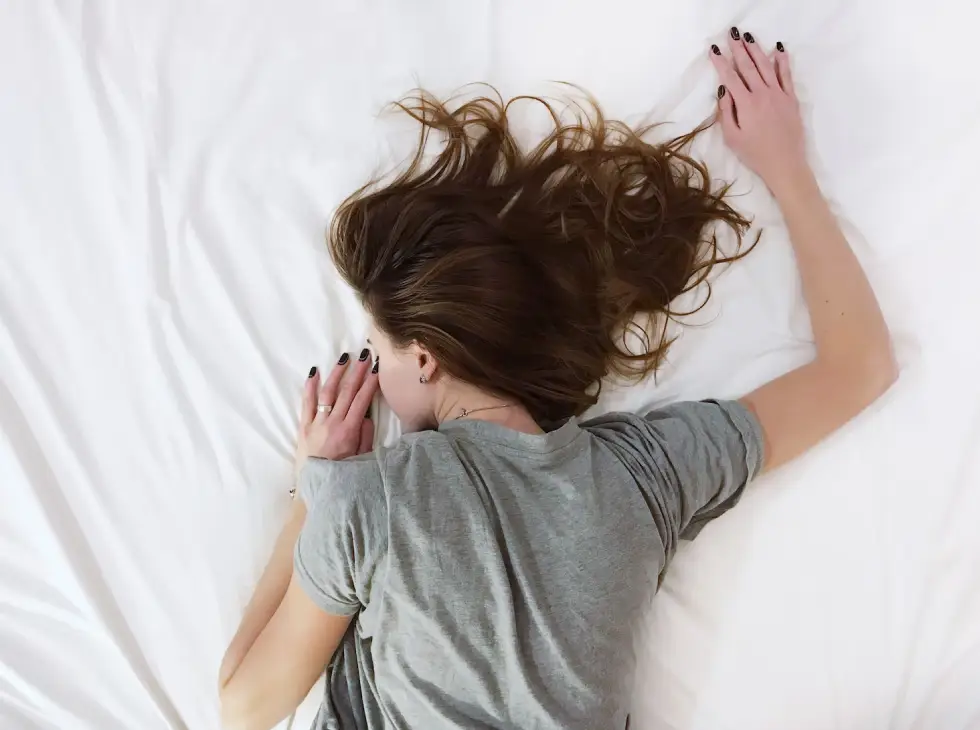In a world that’s constantly buzzing with activity, achieving a good night’s sleep can feel like a distant dream for many. Enter CBD, a compound derived from the cannabis plant that has been making waves in the wellness industry. CBD-infused products are everywhere, from tinctures to capsules, and one area where they’re gaining traction is sleep improvement. In this article, we’ll explore the potential of CBD to enhance your sleep quality and delve into the science behind its effects.
The Science of Sleep and CBD
Before diving into the details, let’s understand why sleep is essential. Sleep is a crucial physiological process that allows our bodies and minds to rejuvenate, repair, and recharge. When we sleep, our bodies undergo complex processes that affect everything from memory consolidation to immune system function. (1)
CBD’s Impact on Sleep Regulation
CBD, short for cannabidiol, is one of the many compounds in the cannabis plant. Unlike THC, CBD is not psychoactive and does not induce a “high.” Instead, CBD interacts with our body’s endocannabinoid system (ECS), a complex network of receptors that helps regulate various physiological functions, including sleep. (2)
Anxiety and Stress Reduction
Anxiety and stress are common culprits that can disrupt our sleep patterns. CBD has gained attention for its potential to reduce anxiety and promote relaxation. Research suggests that CBD may interact with serotonin receptors, which affect mood regulation. By reducing anxiety, CBD might create a more conducive environment for falling asleep and staying asleep. (3)
Pain and Discomfort Relief
Physical discomfort and pain can significantly hinder a good night’s sleep. Whether it’s chronic pain conditions or temporary discomfort, they can prevent us from entering restorative sleep stages. CBD’s anti-inflammatory and analgesic properties may offer relief from pain, allowing individuals to experience more comfortable sleep.
CBD’s Potential to Manage Sleep Disorders
Finding effective treatments can be challenging for those dealing with sleep disorders like insomnia or sleep apnea. Some studies suggest that CBD may positively impact sleep disorders by addressing underlying factors such as anxiety or pain. However, more research is needed to thoroughly understand its potential in this area. (4)
How CBD Can Help Reset Your Sleep Cycle
Our internal body clock, known as the circadian rhythm, regulates our sleep-wake cycle. Disruptions to this rhythm, such as shift work or jet lag, can lead to sleep disturbances. Some research indicates that CBD might influence our circadian rhythm, helping to reset it and improve overall sleep quality.
“CBD interacts with receptors in the endocannabinoid system, and there’s evidence to suggest that it may help regulate sleep patterns. Some users report improvements in sleep quality and duration.” – Dr. Sarah Brewer, Medical Director at Healthspan
Choosing the Right CBD Products for Sleep
Selecting the right CBD product is essential for achieving the desired sleep-enhancing effects. Factors such as dosage, timing, and the type of CBD product all come into play. While some people prefer CBD tinctures, others may find CBD-infused gummies or capsules more convenient. It’s recommended to start with a lower dose and gradually increase it until you find what works best for you. (5)
Real-Life Experiences
Many individuals have reported positive experiences with using CBD to improve their sleep. These firsthand accounts highlight the potential of CBD to provide a sense of calmness, reduce anxiety, and contribute to a better sleep routine. However, it’s important to note that individual responses to CBD can vary.
Expert Insights on CBD and Sleep
Sleep specialists and healthcare professionals have been closely observing the effects of CBD on sleep. Some experts suggest that while CBD shows promise, more research is needed to understand its mechanisms and potential benefits fully. Consulting with a healthcare professional before incorporating CBD into your sleep routine is advised, especially if you have underlying health conditions.
Safety and Precautions
While CBD is generally considered safe, it’s crucial to use it responsibly. Quality matters, so opt for CBD products that undergo third-party testing for purity and potency. Additionally, be aware of potential interactions with medications you might be taking.
Combining CBD with Sleep Hygiene
CBD for sleep enhancement works best when combined with good sleep hygiene practices. This includes maintaining a consistent sleep schedule, creating a comfortable sleep environment, limiting screen time before bed, and avoiding caffeine and heavy meals close to bedtime.
Comparing CBD to Traditional Sleep Aids: Pros and Cons
When considering CBD for sleep, it’s natural to wonder how it compares to traditional sleep aids. While CBD offers a more natural approach and a potential reduction in side effects, it’s essential to remember that individual responses vary. Some individuals may find traditional sleep aids more effective, while others may prefer the holistic benefits of CBD. (6)
Long-Term Use of CBD for Sleep: What to Consider
If you’re considering long-term use of CBD for sleep, discussing it with your healthcare provider is essential. While CBD’s safety profile appears favorable, more extended use might have implications that must be addressed.
Conclusion
In a world that often runs on overdrive, achieving restful sleep is a treasure. CBD’s potential to address factors like anxiety, pain, and sleep disturbances has captured the attention of many seeking a natural way to enhance their sleep quality. As research continues to shed light on CBD’s effects on sleep, it’s essential to approach its use with an open mind, consult with professionals, and prioritize responsible and informed choices for the ultimate goal: a night of restful, rejuvenating sleep.

